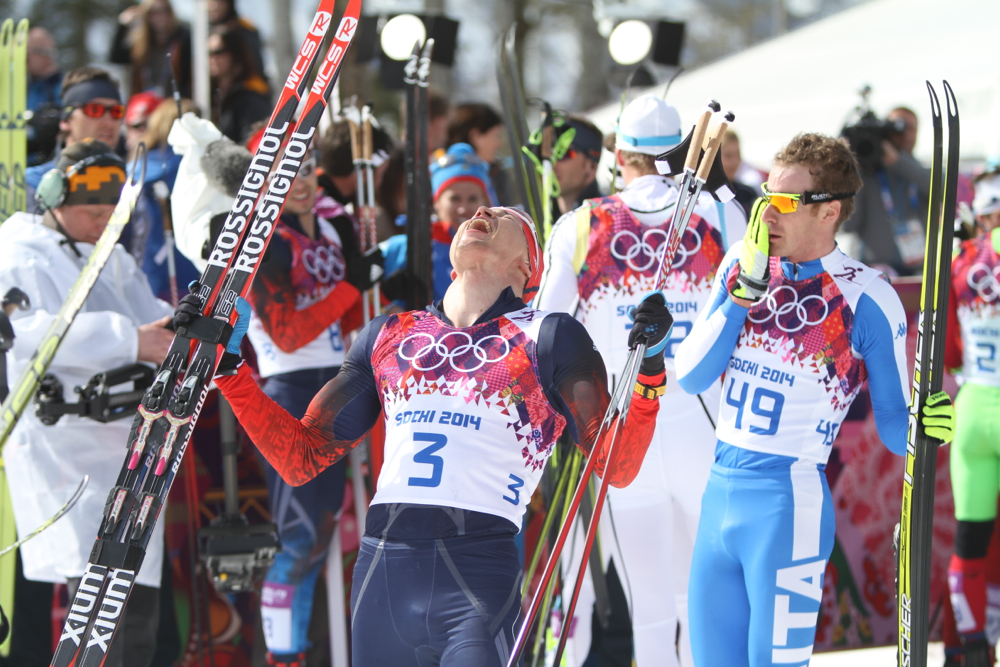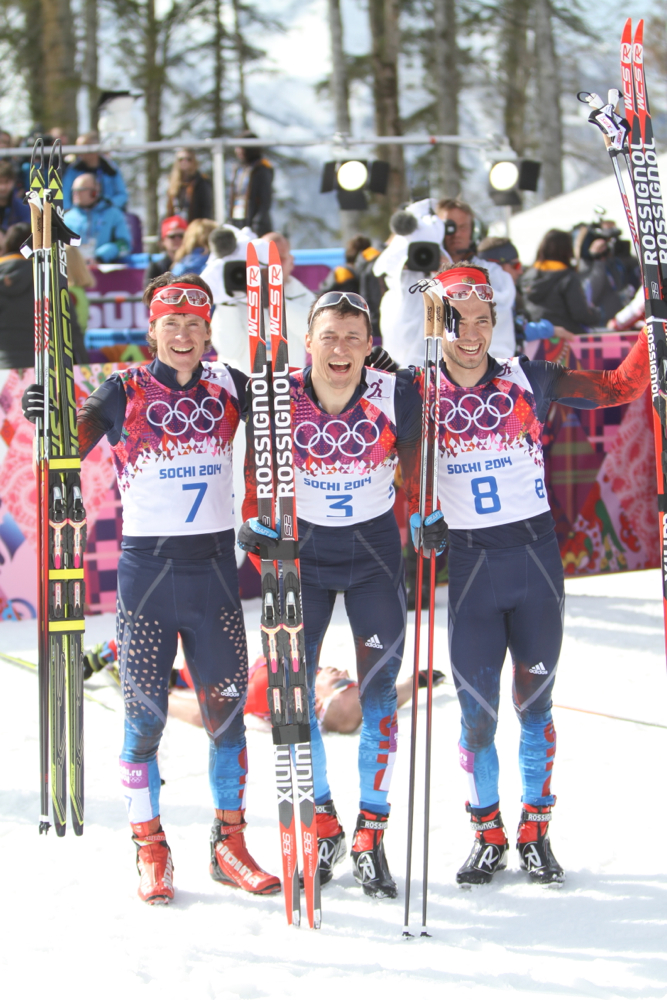
In interviews with the filmmaker Bryan Fogel which were published in the New York Times, the head of the laboratory that handled anti-doping samples at the 2014 Olympics in Sochi, Russia, said that “dozens” of Russian athletes were doping at the Games, including 14 cross-country skiers.
Grigory Rodchenkov said that he had a list of athletes which were targeted to receive illicit drugs, handed to him by the sports ministry. He alleges that along with members of the Russian intelligence service, his staff replaced the supposedly tamper-proof bottles containing the athletes’ urine with urine collected months earlier, thus ensuring clean test results for the athletes.
Although the full list of athletes was not named, the New York Times did specify that Alexander Legkov, the gold medalist in the 50 k freestyle race which concluded the cross-country ski program at the Games, was among the offenders.
Should Legkov be disqualified, then Norway’s Martin Johnsrud Sundby stands to move from fourth up to third place in that race.
Russia sent 20 cross-country skiers to Sochi, meaning that 70% of the team stands to be sanctioned for doping if the allegations prove true.
For instance, Russians also took second and third in the 50 k. If Maxim Vylegzhanin and Ilia Chernousov are also among the 14 offenders on the ski team and are retroactively disqualified, then Sundby stands to earn gold. Sergei Dolidovich of Belarus, who finished fifth, would earn silver and sixth-place Robin Duvillard of France bronze.

Some had long suspected that the Russian podium sweep, as well as Legkov’s heroic leg of the 4 x 10 k relay, were not natural.
“Pushing that hard the whole relay and then jump-skating that hill is not possible. Period,” Wadsworth said in Sochi.
The Russian men’s 4 x 10 k relay team ultimately took silver at the Games. Should that team be disqualified then third-place France stands to receive silver medals and Norway move from fourth up to bronze.
Vylegzhanin and Nikita Kriukov also won silver in the team sprint, ahead of Emil Jönsson and Teodor Peterson of Sweden in third and Ola Vigen Hattestad and Petter Northug of Norway in fourth.
Should two- or four-year bans be applied starting from Sochi, results of numerous international competitions since then would also change.
The World Anti-Doping Agency (WADA) has not yet released a statement about the piece. The Agency is gathered in Montreal, Canada, today for an Executive Board meeting.
WADA released a statement on Tuesday in response to an investigation by CBS’s 60 Minutes in which another whistleblower, Vitaly Stepanov, spoke of Rodchenkov’s Sochi doping list.
“The World Anti-Doping Agency (WADA) announces that it will immediately probe the new Russian doping allegations, related to the 2014 Sochi Olympic Games, which were broadcast on Sunday on CBS 60 Minutes,” the organization said in a press release. “The broadcast features additional allegations of doping misconduct by Russian athletes and entourage members at the Sochi Games that had not previously been exposed.”
The International Olympic Committee, which is responsible for testing at the Games, called on WADA to investigate.
“These allegations are very detailed and very worrying and we ask the World Anti-Doping Agency to investigate immediately,” the IOC said, according to the Associated Press.
The International Ski Federation also does not appear to have made an official comment.
Russia’s sports minister, Vitaly Mutko, told the New York Times that the allegations were “a continuation of the information attack on Russian sport.”
Rodchenkov also said that he had destroyed not just the 100 or so urine samples belonging to Russian athletes in Sochi, but a total of more than a thousand samples that his lab was responsible for. The implication is that other results may also be in question.
While the IOC has said that it would re-test the Sochi samples if there was hard evidence that the testing process had been manipulated, Rodchenkov’s lab’s destruction of so many samples leaves a question mark as to whether this would be either possible or productive.
Rodchenkov claims to have developed a three-drug cocktail to give athletes. Despite a slow start to the Games, the Russians ultimately won 13 gold medals, the most by any country.
Chelsea Little
Chelsea Little is FasterSkier's Editor-At-Large. A former racer at Ford Sayre, Dartmouth College and the Craftsbury Green Racing Project, she is a PhD candidate in aquatic ecology in the @Altermatt_lab at Eawag, the Swiss Federal Institute of Aquatic Science and Technology in Zurich, Switzerland. You can follow her on twitter @ChelskiLittle.



